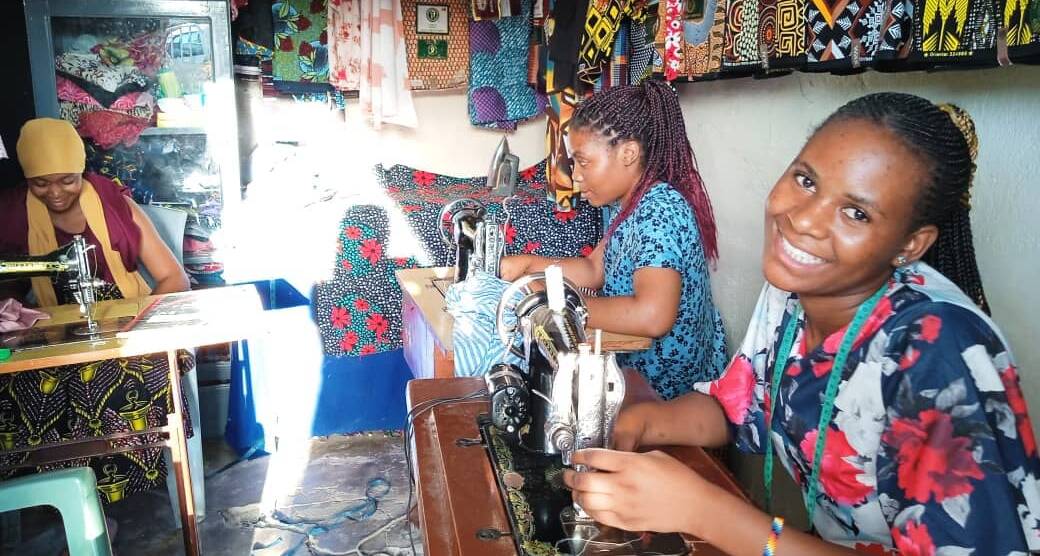In Tanzania, young girls are trafficked for the purposes of forced labor and sexual exploitation. Lured by unregistered employment agencies with the promise of high wages, poor families from rural areas sell their girls into sex-slavery unknowingly. The girls are typically brought to urban centers for domestic servitude and commercial sexual exploitation. DMI, the only organization that rescues trafficked girls in Dar es Salaam and one of only two organizations in the entire country, provides direct services. Its interventions also include programming for children and youth to avert the need for trafficking.
SPRING OF HOPE: SHELTER AND VOCATIONAL TRAINING FOR TRAFFICKED GIRLS
DMI established Spring of Hope in 2010 as a shelter and safe haven for victims of human trafficking. The shelter is a campus located on 40 acres on the outskirts of Dar es Salaam, with dormitories, dining halls, classrooms, and job training facilities. The girls range in age from 13 – 19. They were found by law enforcement, community organizations, concerned citizens, and through DMI’s outreach efforts.
DMI provides a year-long program of healthcare, psychological counseling, education, and vocational training choosing from tailoring, culinary skills, computers, or cosmetology. At the end of this year, the goal is to have improved the girls’ health, job skills, confidence and a sense of dignity.
WINGS of HOPE – TRAFFICKING PREVENTION
DMI uses innovation interventions to raise awareness and prevent trafficking in Tanzania. One example is its Wings of Hope mobile school – a bus converted into two training labs: one for the computer training course, and the other for cosmetology. Wings of Hope is taken to rural villages to provide a six-month training program for youth (five weeks of intensive instruction followed by a one-month internship. Once the students complete their training, they are awarded a certificate of course completion, given the equipment and supplies that they need to begin their own businesses or join another company. and are placed in jobs. As a wage earner contributing to the overall household income, they are far less likely to be exploited and trafficked. Peer-led alumni groups allow students to join a community of learners and support one another.
WOMEN’S EMPOWERMENT
DMI’s women’s empowerment programs are designed to alleviate poverty and hunger. Organized in self-help groups, women can create and support one another in a savings and loan program to improve their household income through income generating activities. Women members are trained in business development to scale their small businesses. The groups also provide a platform where women can collectively solve community problems, promote personal hygiene and health and wellness, and increase their civic engagement by encouraging participation in local government.
EDUCATION FOR THE POOR CHILDREN
DMI’s child development programs have two prongs: encourage school attendance and improve academic success, and promote civic engagement.
Oftentimes a barrier to education, especially for those in poor, rural villages, is that families cannot afford to purchase basic supplies. DMI identifies vulnerable children and provides notebooks, stationeries, school bags and sandals to continue and complete their schooling. They also created learning centers in an effort to motivate children to encourage regular school attendance and improve academic performance. DMI also offers extracurricular activities through organizations competitive sports.
Civic engagement is also a fundamental skill that DMI instills in young children. Young students are organized in parliaments to develop their leadership skills and improve their decision-making skills so that they can use their voices to advocate for themselves and safeguard their rights. Children learn parliamentary procedures, and gain an understanding of governmental roles.

